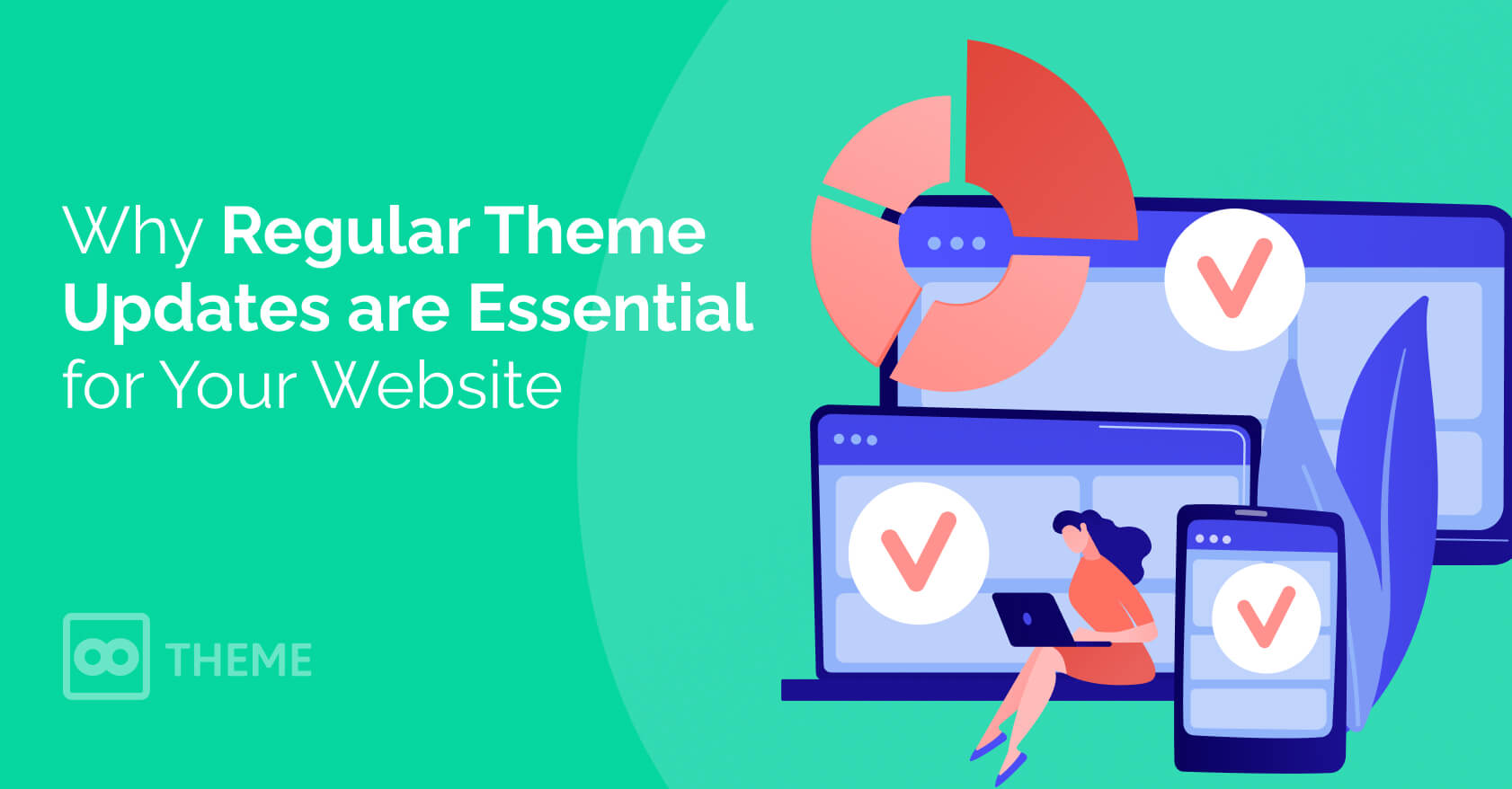
In today’s fast-paced digital world, what’s cutting-edge today may become outdated tomorrow. Websites, being a cornerstone of modern business and communication, are particularly susceptible to this phenomenon. Without theme updates on WordPress, your website is likely to encounter several critical challenges:
In this article, we’ll explore the importance of updates for ready-made WordPress themes from 8Theme and how they can safeguard and enhance your business.
Data security is non-negotiable, and updates to themes from 8Theme are a crucial step in protecting your website.
For instance, the General Data Protection Regulation (GDPR) is a stringent EU law designed to protect personal data. Compliance requires robust security measures, which are often addressed through timely updates.
Why Outdated Websites Are at Risk:
The stakes are high. For example, in 2023, MGM Resorts fell victim to a cyberattack due to outdated security measures. The attack disabled core systems, including reservations and electronic keys, resulting in daily losses of $8.4 million and potential data breaches.
However, the most crucial step is ensuring timely updates. Neglecting them leaves your site vulnerable, potentially leading to severe financial and reputational damage.
Ready-made WordPress themes from 8Theme offer updates designed to keep your website secure, functional, and aligned with the latest web standards. Investing in such themes is a proactive way to ensure your site performs optimally and remains protected against emerging threats.
Stay ahead in the digital landscape—don’t let outdated themes hold your website back.
WordPress adheres to a consistent release schedule, rolling out updates to its core systemly. These updates fall into three categories:
For websites built on outdated themes, these updates can create several challenges:
To ensure your website operates securely and efficiently, choose themes like those from 8Theme, which are consistently updated to meet modern WordPress standards.
To keep your site running smoothly, follow these best practices:
Keeping your WordPress core and themes updated ensures your site remains secure, stable, and high-performing, while reducing the likelihood of cyberattacks and ensuring compatibility with emerging technologies.
Two of the most widely used WordPress plugins, WooCommerce and Yoast SEO, are updated frequently. These updates have a significant impact on websites, especially those using outdated templates.
Older templates often include outdated code, which can:
Switching to actively maintained themes, like those from 8Theme, minimizes these risks and ensures your site benefits from modern functionality, enhanced security, and optimal performance.
Stay Ahead with Regular Updates. To avoid downtime and maintain compatibility:
By committing to updates, you’ll secure your website, improve user experience, and align with current SEO and functionality standards.
Regular updates to WordPress and its related tools (templates and plugins) are essential for maintaining optimal website performance. These updates include important code optimizations, bug fixes, and new features that directly impact how well a site runs. When a template is not updated alongside WordPress core updates, it can cause significant issues, leading to performance degradation and compatibility problems.
Impact of Updates on Website Performance:
Using outdated themes comes with several risks:
Keeping your template updated ensures your website meets modern performance standards and stays competitive in a fast-moving digital environment.
Outdated WordPress templates can cause a site to fall behind in terms of functionality, accessibility, and overall web standards compliance. Regular updates are necessary to ensure your site adheres to current standards, providing a better user experience and avoiding legal and technical pitfalls.
Regularly updating your WordPress theme is essential for staying competitive, improving functionality, and meeting modern standards. Outdated templates can affect your site’s performance, security, and user experience, putting you at risk of falling behind in a rapidly evolving digital landscape. By choosing themes that arely updated, you ensure that your site remains functional, secure, and optimized for the best user experience.
In today’s digital world, where the virtual environment is seamlessly integrated into our daily lives, website updates are critical for maintaining security, performance, and functionality. Choosing a well-maintained theme is a key factor in ensuring that your WordPress website remains competitive, secure, and efficient.
8Theme offers visually appealing, modern-ready templates that are continually updated, ensuring that your website is always in line with the latest web standards. These updates are essential for several reasons:
By choosing 8Theme’sly updated WordPress templates, you are investing in the longevity and competitiveness of your website, ensuring it remains relevant and effective in an ever-changing digital landscape.

